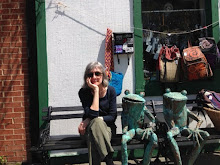From September through December, we will be immersing ourselves and our children in the world of the “Great Migration” of the early 20th century, when millions of Jews left Eastern Europe in search of a better life. The vast majority of those Jews settled in the United States, and Judaism (as a religion and as a culture) underwent a profound and unprecedented transformation as a result. An exploration of this pivotal era in Jewish history will be our springboard into an exploration of several core ethical principles in Judaism. Can you guess what those might be? I hope you will join us often during this “Coming to America” semester, as we explore these ethical principles in discussions of books and films on Shabbat evenings as well as during Tikvah Learning with our children. And watch for details of our community Field Trip in October!
On another note: There is a Jewish custom of visiting the gravesites of our loved ones in the weeks prior to the High Holidays. If you are not able to make the trip, consider finding some other way to symbolically make the “visit.” Set aside some time for reflection and meditation, perhaps give some tsedakah, and/ or do some other act to honor your loved one’s memory. The month of Elul, prior to Rosh Hashanah, is traditionally a time of heightened focus on the need for forgiveness. Might there be ways in which we still need to give and receive forgiveness, even in the absence of the other person?
You may find it helpful to contemplate these words, taken from our Yom Kippur liturgy: “I hereby forgive all who have hurt me, all who have wronged me, whether deliberately or inadvertently, whether by word or by deed. May no one be punished on my account. As I forgive and pardon those who have wronged me, may those whom I have harmed forgive and pardon me, whether I acted deliberately or inadvertently, whether by word or by deed.”
Blessings for a sweet new year,
Rabbi Kafka
On another note: There is a Jewish custom of visiting the gravesites of our loved ones in the weeks prior to the High Holidays. If you are not able to make the trip, consider finding some other way to symbolically make the “visit.” Set aside some time for reflection and meditation, perhaps give some tsedakah, and/ or do some other act to honor your loved one’s memory. The month of Elul, prior to Rosh Hashanah, is traditionally a time of heightened focus on the need for forgiveness. Might there be ways in which we still need to give and receive forgiveness, even in the absence of the other person?
You may find it helpful to contemplate these words, taken from our Yom Kippur liturgy: “I hereby forgive all who have hurt me, all who have wronged me, whether deliberately or inadvertently, whether by word or by deed. May no one be punished on my account. As I forgive and pardon those who have wronged me, may those whom I have harmed forgive and pardon me, whether I acted deliberately or inadvertently, whether by word or by deed.”
Blessings for a sweet new year,
Rabbi Kafka
